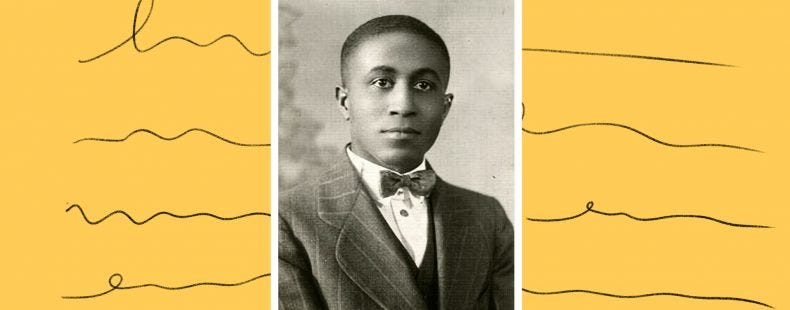Black speech isn’t wrong, or uneducated, mistaken, or a corruption of the English language.
Like all language, it’s a way people have developed to communicate with each other. I see transcriptionists “correct” it, now and then, but we’re experts in capturing the spoken word. The funny thing about the spoken word is that it doesn’t follow the rules, necessarily, and you can’t always find it in text books. But it is language, and we do our best to capture how people speak!
The study of Black language is a complex and rich field. While many scholars focus their rigorous research on African American Vernacular English, others painstakingly examine pidgin languages, which are simplified versions of a language as used by speakers of different languages to communicate.
Still other scholars are renowned creolists who specialize in the study of the creole languages that emerge from mixtures of multiple languages. Creole languages (such as Louisiana Creole) are themselves distinct languages with unique grammar and vocabulary.
While we obviously cannot discuss every Black scholar who has contributed to the study of language, in this article we attempt to spotlight a wide variety of scholars with different approaches and also attempt to give credit to some who have been overlooked.
If you would like to learn more about Black scholars of language, including some of those we will identify here, you can check out this list of Black linguists.
Lorenzo Dow Turner (1890-1972)
Lorenzo Dow Turner is mainly known for his studies of the Gullah language, also known as Geechee or Gullah Geechee. Today, Gullah is described as a creole language derived from English and African languages. In Turner’s time, though, it was thought Gullah came purely from English and had no African influence. Through his research, Turner proved this was not true and presented his findings in the pivotal book Africanisms in the Gullah Dialect (1949). Today, Turner is often remembered as the “father of Gullah studies.” Turner’s groundbreaking work is credited not only with establishing the link between Gullah and African language but also with demonstrating evidence that African American culture was not simply a derivative of white American culture.
Mark Hanna Watkins (1903-1976)
Mark Hanna Watkins was one of the earliest African American linguists and is said to be the first African American to earn a doctorate with a dissertation in linguistics. Watkins researched both linguistics and anthropology and studied many different languages and cultures during his life, including those of Indigenous Mexican peoples, Native Americans, Africans, and Haitians. His 1933 dissertation on the Chichewa language is still noted today as being the first book about the grammar of an African language written by an American. This was especially impressive given the challenges nonwhite academics faced during the time. A lifelong scholar, Watkins spent his final moments dictating his final book, which was published after his death.
Share Capturing Voices
Robert L. Williams (1930-2020)
Robert L. Williams coined the term Ebonics, a combination of ebony and phonics, to refer to what is now generally known as African American Vernacular English (AAVE). Williams believed that the English spoken by African Americans was its own dialect and not a substandard version of the English spoken by white Americans—a popular belief at the time. He presented his research and argument in his 1975 book Ebonics: The True Language of Black Folks. Williams was a psychologist who was a founding member of the Association of Black Psychologists. However, Williams is most often remembered for the contributions he made to the study of language.
Get to know some of the defining elements of AAVE.
John R. Rickford
John Rickford is a renowned scholar whose research has focused largely on sociolinguistics, a field of study that analyzes the impact that societal factors have on language. Rickford’s research has spanned a wide range of language topics, including but not limited to AAVE, pidgin, and creole languages. In particular, he has thoroughly studied Gullah and the Guyanese Creole that he himself speaks. A few examples of his extensive body of scholarly work include Dimensions of a Creole Continuum: History, Texts & Linguistic Analysis of Guyanese Creole (1987) and African American Vernacular English: Features, Evolution, Educational Implications (1999).
Sonja L. Lanehart
Sonja L. Lanehart has worked on a number of projects documenting the importance of AAVE and language, often with a focus on the role that sociological factors play on language. She was co-editor of The Oxford Handbook of African American Language (2015) and an associate producer of Signing Black in America: The Story of Black ASL (2020), a documentary about the history and importance of Black American Sign Language (BASL), which is a distinct dialect of sign language.
Michel DeGraff
Michel DeGraff is a creolist with a particular focus on Haitian Creole, also known as Kreyòl. He is a founding member of Akademi Kreyòl Ayisyen (the Haitian Creole Academy). He has advocated for recognition of Haitian Creole as an official language, and his research often discusses the intersection of language with education and social justice. In particular, DeGraff has often argued in favor of teaching Haitian children Haitian Creole rather than the French language often taught in Haitian schools. Some examples of DeGraff’s research include Language Creation and Language Change: Creolization, Diachrony, and Development (2001) and “The Politics of Education in Post-Colonies: Kreyòl in Haiti as a Case Study of Language as Technology for Power and Liberation” (2020).
Check out some of the rich linguistic contributions to English that come from the Caribbean—including Haiti and beyond.
Nicole Holliday
Nicole Holliday describes herself as a sociophonetician, and her research often analyzes the relationship between linguistics and social identity. Her research has often focused on phonology and phonetics. As an example, she has researched how speakers and listeners often judge each other based on intonation, pronunciation, and other aspects of speech. For example, she worked on the grant-funded study “’Don’t Take That Tone With Me’: Linguistic Variation and Disciplinary Action on African American Children in Schools.” Her recent research has also involved the study of the intersection of phonetics and modern technology, such as voice assistants and artificial intelligence.
Salikoko Mufwene
Salikoko Mufwene’s recent research has focused on evolutionary linguistics, a scientific approach that analyzes how ecology and biology have influenced the change of language throughout human history. Mufwene is a creolist whose extensive language studies have included research on Gullah, AAVE, Jamaican Creole, and a variety of Bantu languages, including one of his native languages, Kiyansi. Some of the books written by Mufwene include The Ecology of Language Evolution (2001) and Language Evolution: Contact, Competition and Change (2008).



